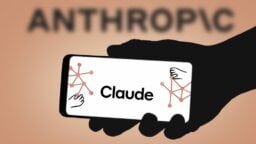A US federal appeals court has turned down a request to rehear a ruling from February in which it overturned a $1 billion copyright infringement verdict against Cox Communications, in a case brought by major recording companies.
In a decision on Tuesday (March 19), a three-judge panel of the Fourth Circuit Court of Appeals declined to rehear an earlier ruling by the court in which it tossed out a $1 billion award for damages against Cox, and ordered a retrial to determine the amount of damages to be awarded.
In their decision, the judges offered no reasons for not rehearing the case.
The long-running case has pitted dozens of recording companies, including Sony Music (the lead plaintiff), Universal Music Group and Warner Music Group, against Cox Communications, the third-largest provider of broadband internet services in the US as of 2022, over piracy of music taking place on its networks.
The music companies’ lawsuit against Cox, originally filed in 2018, alleged that Cox “knowingly contributed to, and reaped substantial profits from, massive copyright infringement committed by thousands of its subscribers.”
The lawsuit was widely seen as a “test case” of whether an internet service provider (ISP) can be held liable for the infringement of its subscribers.
In 2019, jurors in a federal court in Virginia sided with the music companies, declaring that Cox Communications had committed both “contributory infringement” and “vicarious infringement” of the music companies’ copyrights, by not taking enough action to prevent piracy on its networks.
The jury ordered Cox to pay more than $99,000 per track infringed by its subscribers on peer-to-peer file-sharing networks. With 10,017 musical works cited by the music companies, the total damages came to around $1 billion.
Cox called that judgment “unwarranted, unjust and an egregious amount,” and eventually filed an appeal with the Fourth Circuit Court of Appeals.
In February of this year, the court struck down the $1-billion award.
“We affirm the jury’s finding of willful contributory infringement. But we reverse the vicarious liability verdict and remand for a new trial on damages because Cox did not profit from its subscribers’ acts of infringement, a legal prerequisite for vicarious liability,” the appeals court ruled.
That decision didn’t satisfy either the record companies or Cox Communications, and both filed a petition for a rehearing.
In its petition, Cox Communications argued the appeals court didn’t go far enough by ordering a retrial on damages, and the company shouldn’t be held liable at all for its users’ infringement.
Cox argued that earlier rulings of the Fourth District – which encompasses Maryland, North Carolina, South Carolina, Virginia, and West Virginia – have created “the most draconian approach in the country” when it comes to holding ISPs responsible for subscribers’ piracy.
“If an ISP receives more than one accusation that some anonymous person used a specified internet connection to download infringing songs, it can avoid liability only by swiftly throwing every person in that home or business off the internet…”
Cox Communications, in a petition to the 4th Circuit of Appeals
“If an ISP receives more than one accusation that some anonymous person used a specified internet connection to download infringing songs, it can avoid liability only by swiftly throwing every person in that home or business off the internet, disconnecting the guilty and innocent alike from their schools, their livelihoods, their nanny cams, their news, and everything else they do online,” stated Cox’s petition to the appeals court, which can be read in full here.
“If instead the ISP continues to provide the connection, a jury can find it engaged in ‘culpable conduct’ akin to aiding and abetting a crime.”
For their part, the record companies argued that the appeals court had made an error by vacating the jury’s award for damages, because in the original trial, Cox itself had proposed the method by which the jury would determine damages, if it were found liable, and the court accepted that method.
“Cox’s challenge to a unitary damages award that Cox itself requested is barred under this Court’s invited-error doctrine.”
Sony Music et al. in a petition to the 4th Circuit Court of Appeals
By ignoring this, the appeals court had contradicted its own legal doctrine, lawyers for the music companies argued.
“Cox’s challenge to a unitary damages award that Cox itself requested is barred under this Court’s invited-error doctrine,” stated the record companies’ petition, which can be read in full here.
“The panel nonetheless vacated the damages award, concluding that the award could not stand after the panel’s reversal on vicarious liability. It did not address or explain Cox’s waiver.”
The record companies also cited legal precedent that, in instances where part of the charges against a defendant are dropped, the damages awarded can remain the same if the award was “predicated on the same conduct and the maximum damages for each is identical.”
The case, which now heads back to a lower court for a retrial to determine the damages to be awarded to the music companies, is one of a growing number that has been filed against ISPs in the US over copyright infringement by their subscribers.
Most recently, Altice USA was hit with two copyright lawsuits brought by music companies. In one case, BMG, Universal Music, Capitol Records and Concord Music Group are seeking damages of $1 billion. In another case, Sony Music and Warner Music Group are seeking $1.6 billion.
Another closely-watched case was filed by the major recording companies against Charter Communications in 2019. The cable and internet giant settled that case out of court in 2022.Music Business Worldwide





